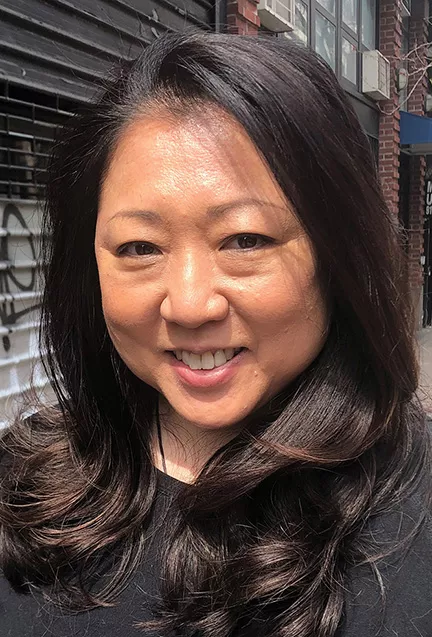A Conversation with Kanako Okuda
The GSSWSR’s new director of field education talks about how her own journey influenced her chosen career.
The Graduate School of Social Work and Social Research recently welcomed Kanako Okuda as the director of field education. Okuda is a social work practitioner, educator, and advocate. Recently, she served as the director of field education and an assistant professor at George Mason University in Fairfax, Virginia, and previously as the director of field education at Silberman School of Social Work at Hunter College, the City University of New York. Prior to her time at Hunter, Okuda was an education coordinator, field instructor, and lecturer at Columbia University School of Social Work. She has been actively involved in social justice throughout her career by designing and facilitating workshops for students and the community.
We caught up with Okuda to find out more about her own journey and what makes her passionate about field education.
What role does field education play at the GSSWSR?
Field education is the signature pedagogy of social work education, where students learn to think and act like social workers. Students may learn theory and information in the classroom, but in field education, in social service agencies, they need to practice those skills. This is where students integrate what they have known as a person before they came to social work school and what they learn in the classroom. It’s the process of becoming social workers.
Research shows that for many people in the helping professions, one of the most significant motivators is the desire to become the person they wished they had growing up when they needed them. So, it's very emotional. Many students come into social work thinking it’s going to be a certain way, but once they start their first class and go into their field practicum, they begin to learn that there are so many ways to help people. That in and of itself can cause some anxiety.
Students are also expected to take risks in their learning, and they may need to make mistakes here and there to be able to get to where they need to be. Some students come right from undergrad with very limited work experience. That also can cause anxiety. Some people are career changers who think social work is their calling. And they may put a lot of pressure on themselves for everything to be right. In the field education office, we sort of dance with all of the expectations.
We find them field placement in community based social service agencies, hospital healthcare or inpatient outpatient, psychiatric, veterans, or mental health agencies. We’re currently also working with some agencies for people for whom English is a second language.
Part time students have one academic year while taking classes before they start their field practicum, but fulltime students are interviewed and can be placed even before they take one social work class.
What made Bryn Mawr interesting to you?
BMC was the first school to offer a Ph.D. in social work. So obviously it has prestige and history. We attract very capable and experienced students. At the same time, students with a certain capacity and privilege tend to go from privilege to privilege. I’m thinking about what it’s like for social work students to never encounter people who struggle to get their next meal on the table. I’m thinking about how to offer the most comprehensive and rich experience for social work students to be exposed to the core of the social work profession, which is to serve the under-served. I think it's very important for social work students to learn how to serve people who are poor.
Can you tell me about your own journey?
I was born and raised in Japan. and I love dancing. I came to New York in the late 1980s to become a dancer. I spoke about 50 words of English. I was very young and very naive. I was lucky to meet wonderful friends and mentors but living in New York city all by myself was very difficult and presented its own challenges. Another thing that was happening was that I had landed in the middle of the AIDS epidemic without really knowing what was going on. Particularly in the arts field in New York City many people were living with AIDS and HIV, and I began to lose my community through AIDS. It got to the point where I could not go back to the dance studio without crying.
I decided that it was time to start a new career and decided to go back to school. I wasn't really sure what I wanted to do after losing so much. I studied for one semester at Fordham University, but then switched to Hunter College since I couldn’t afford the tuition at Fordham. One of my colleagues at the handbag store where I worked to earn extra money was attending social work school and she said maybe I should give it a try. I didn't really know what social work was, but I thought that it sounded like something that I could study. I ended up getting my master’s from Columbia.
One of the reasons I chose field instruction is that when I was at Columbia University Medical Center, I was appointed as the educational coordinator for the children's hospital where I coordinated training for social work interns. I've always enjoyed teaching and I've always enjoyed training others. So, it all sort of came together. It's very exciting to be a witness to students transforming into professional social workers.
Published on: 10/24/2022
